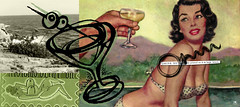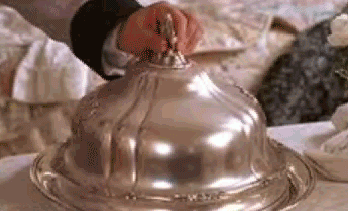Smile Again

Brian Wilson
Originally uploaded by H. Michael karshis.
Rebuilding Brian Wilson's 'Smile'
By BERNARD WEINRAUB
THIRTY-SEVEN years ago, Brian Wilson nearly completed what he hoped would be his masterwork, an album called "Smile" that he described as "a teenage symphony to God." This year, in a way, he finished it.
Mr. Wilson, the mastermind of the Beach Boys, had envisioned an album that would merge pop hooks and elaborately composed interludes, with allusive lyrics by Van Dyke Parks that encompassed romance, American history and the alchemical elements.
"Smile" was to be even more ambitious than Mr. Wilson's "Pet Sounds," the intricately orchestrated, structurally far-reaching 1966 album that the Beatles tried to top with "Sgt. Pepper's Lonely Hearts Club Band." More than 400,000 "Smile" album covers were printed.
But "Smile" turned into a nightmare for Mr. Wilson, who was spiraling toward a nervous breakdown and struggling with drugs and with personal demons that would envelop him for decades. The other members of the Beach Boys had grown dubious about the commercial prospects of the increasingly complex music and lyrics. There was rancor from Mr. Wilson's father, Murry, a frustrated musician who had beaten him during his childhood, and there were legal battles with the Beach Boys' label, Capitol Records. Mr. Wilson had grown reclusive and increasingly bizarre: he ordered eight truckloads of beach sand dumped around his piano at home so he could wiggle his toes in it for inspiration.
After 85 recording sessions, including more than two dozen for the song "Heroes and Villains" alone, Mr. Wilson abandoned "Smile," and it turned into the most famous unheard album in pop history. "I thought it was too weird, I thought it was too druggie influenced, I thought the audience wouldn't get it," Mr. Wilson said in an interview.
What remains of the original "Smile" are songs that appeared in different versions on subsequent Beach Boys albums, among them "Good Vibrations," "Heroes and Villains," "Surf's Up," "Cabinessence" and "Wind Chimes", and fragments of session tapes. But after reworking "Pet Sounds" for a triumphant concert tour in 2000, Mr. Wilson decided to return to "Smile."
This year, Mr. Wilson, Mr. Parks, a 10-piece band and additional strings and horns resurrected the album from shards and memories. After performing a live version in concert in Europe, they returned to the studio to make an entirely new recording of "Smile": 17 intricate, multifaceted, enigmatic songs, grouped into three suites, sometimes linked by recurring themes. The album will be released by Nonesuch on Sept. 28, and Mr. Wilson will perform a concert version of "Smile" on a monthlong American tour that begins on Sept. 30 in Minneapolis and reaches Carnegie Hall on Oct. 12 and 13.
The European reviews were rapturous. "The music echoed everything from Philip Glass to Kurt Weill to Chuck Berry," a reviewer wrote in The Daily Telegraph when "Smile" was performed in London. "Leonard Bernstein said Brian Wilson was one of the greatest composers of the 20th century. He was not wrong." A critic for the Guardian referred to "the groundbreaking complexity and sophistication" of "Smile," saying that the concert "made it seem like the grandest of American symphonies."
Mr. Wilson's fragility was clear at the concerts, he sometimes needs help getting on and off the stage and it is evident in conversations with him. He is 62, and the years of mental illness and drugs have left him shaky at times, a tall, hefty man with sad, hollow eyes. Sitting upright and tense in the library of his home in a gated community atop Beverly Hills, or talking on the telephone, Mr. Wilson often speaks in terse sentences and monosyllables. His speech is occasionally slurred; he sometimes seems lost in his own world. At other times, he speaks strongly and comfortably.
"I love life," he said. "The odds were against me, of course."
Mr. Wilson has said that he wanted to release "Smile" as a legacy before he died, to close the most painful chapter in his troubled life.
"It was finally ready to be finished, ready to be accepted," he said. "We thought it was too advanced for people at that time. We think people are now ready to understand where it was coming from. Back then, no one was ready for it."
Echoing Mr. Wilson, his friend and collaborator, Mr. Parks, said: "There are intimations of mortality here, intimations about the end of his performing cycle. With these intimations, decisions become profoundly more difficult.
"I get the impression that Brian knew he was running out of time and if he was going to present the work he'd have to make a decision to do it and no longer be embarrassed that he had followed his own madness as a 24-year-old composer. This is inexorably a highly personal move and a musical move."
Mr. Wilson, whose personal life was a shambles from the 1960's to the 1980's, said that his wife of nine years, Melinda Ledbetter, had given him a serenity that had long eluded him. "She's inspired me," he said. "She's inspired me to write music. My children inspire me."
Mr. Wilson and Ms. Ledbetter live quietly in Beverly Hills with three young adopted children, on whom he dotes. (Mr. Wilson also has two grown daughters from his first marriage, Carnie and Wendy Wilson, who sing in the group Wilson Phillips.)
Ms. Ledbetter, a one-time auto saleswoman, met Mr. Wilson in 1986 when she sold him a Cadillac, what she calls "a really ugly brown Seville," in a showroom in Santa Monica. They dated sporadically and married in 1995. A friendly, straightforward woman, Ms. Ledbetter said her husband's severe emotional problems dated to his childhood and his abusive father. Mr. Wilson is deaf in one ear, which may be the result of childhood beatings.
"He was a very mean man; he'd beat me physically, but mostly mentally he beat me," Mr. Wilson said of his father, who died in 1973. "He was our manager when we started but was so hard to live with that we fired him."
Ms. Ledbetter said: "Brian is mentally ill. He suffers from depression and he was never treated and when somebody is mentally ill from that early on and it goes untreated, then it makes it more difficult." It was only after doctors at the University of California, Los Angeles, prescribed antidepressants that Mr. Wilson began to improve.
In the 70's Mr. Wilson's first wife, Marilyn, hired a Hollywood psychologist, Eugene Landy, to help him. Dr. Landy lived with Mr. Wilson 24 hours a day and took over his life, including business and music decisions; he even became the beneficiary of Mr. Wilson's will. Band members and relatives eventually filed suit. Dr. Landy lost his license to practice psychology in California for at least two years in 1989. In 1991, a judge put Mr. Wilson's affairs under a court-appointed conservator.
Ms. Ledbetter described Mr. Wilson's career now as "one step at a time."
Musicians have never stopped praising and echoing Mr. Wilson's ambitious songs from the 1960's, even after he withdrew from performing. But in the 1990's, Mr. Wilson began overcoming his longtime stage fright. In 2000 he and his new band performed "Pet Sounds," which had included several of the Beach Boys' biggest hit singles "Sloop John B," "God Only Knows" and "Wouldn't It Be Nice" alongside Mr. Wilson's more convoluted and introspective songs.
Mr. Wilson seems fully aware that his musical achievements are widely appreciated. The Rock and Roll Hall of Fame and Museum has described him as "one of the few undisputed geniuses in popular music" and said that the Beach Boys were "responsible for some of the most perfect harmonies and gorgeous melodies in rock and roll history."
The group was founded in 1961 by Brian and his brothers, Dennis and Carl Wilson, along with Mike Love, a cousin, and Al Jardine, a friend. Although the Beach Boys' earliest hits, in 1962 and 1963 "Surfin' Safari," "Surfin' U.S.A," "Surfer Girl" celebrated Southern California teenage boys' obsessions with the beach and hot rods and pretty blond girls, even back then Mr. Wilson was hardly a beach boy. He didn't surf and disliked the beach.
By 1966, the Beach Boys had racked up nearly two dozen Top 40 hits, including three No. 1 songs: "I Get Around," "Help Me Rhonda" and "Good Vibrations," all produced by Mr. Wilson. By the 1970's he had already begun his steep decline into drugs, after suffering a nervous breakdown. Dennis Wilson drowned in 1983 while swimming off his boat in Marina del Ray. Carl Wilson died of lung cancer in 1998. Mike Love currently leads a touring Beach Boys group unaffiliated with Mr. Wilson.
Earlier this year, Mr. Wilson released an album of new songs, "Gettin' In Over My Head," with guest appearances from Paul McCartney, Elton John and Eric Clapton; it received mixed reviews. He says he plans to tour Australia in December with "Smile" and then start working on a new rock and roll album.
"I'm 62 but I feel like I'm 42," he said. "I wanted to retire but I changed my mind. I can't help but make music for people. I love to make people happy. I'm happier now than I've ever been. I got standing ovations wherever I went in Europe. I feel young. I feel happy. Isn't that something?"
That's the Big Something Brian. Thanks again for signing my Pet Sounds album!
peace,
HMK


















